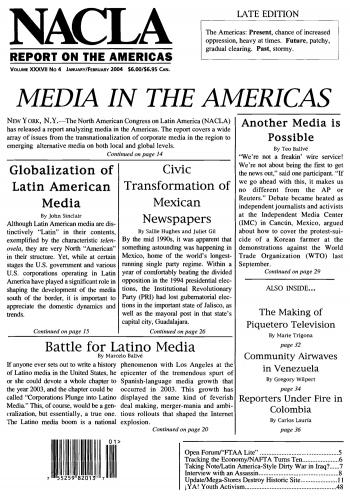Report
The global Indymedia collective is at the forefront of a new media paradigm that is challenging existing media models and practices. We're not a freakin' wire service! We're not about being the first to get the news out," said one participant.
Until the late 1990s, Venezuela’s leaders routinely persecuted the country’s community media. Homes and offices that housed community radio stations were regularly raided and their operators often feared for their lives. Running a community radio or television station was a truly clandestine activity.
Ruth Morris and I were on an assignment for the Los Angeles Times when the trouble started. On January 21, 2003, while traveling between the towns of Saravena and Tame in Arauca department, we came across a guerrilla checkpoint.
Forty years of civil war have taken a heavy toll on Colombia’s press corps. In the last decade alone, at least 30 journalists have lost their lives while attempting to carry out their work.
If anyone ever sets out to write a history of Latino media in the United States, he or she could devote a whole chapter to the year 2003, and the chapter could be called “Corporations Plunge into Latino Media.” This, of course, would be a generalization, but essentially, a true one.
Sallie Hughes & Juliet Gil
By the mid 1990s, it was apparent that something astounding was happening in Mexico, home of the world’s longest-running single party regime. Within a year of comfortably beating the divided opposition in the 1994 presidential elections, the Institutional Revolutionary Party (PRI) had lost gubernatorial elections in the important state of Jalisco, as well as the mayoral post in that state’s capital city, Guadalajara.
Although Latin American media are distinctively “Latin” in their contents, exemplified by the characteristic telenovela, they are very North “American” in their structure.
Argentina’s alternative media have commonly limited their role in the social movements to informing the public about corporate media’s misinformation and providing proof of state repression. Developing a role beyond responding to the monopolization of corporate media and integrating into social processes has been a constant challenge for most of Argentina’s alternative media.

